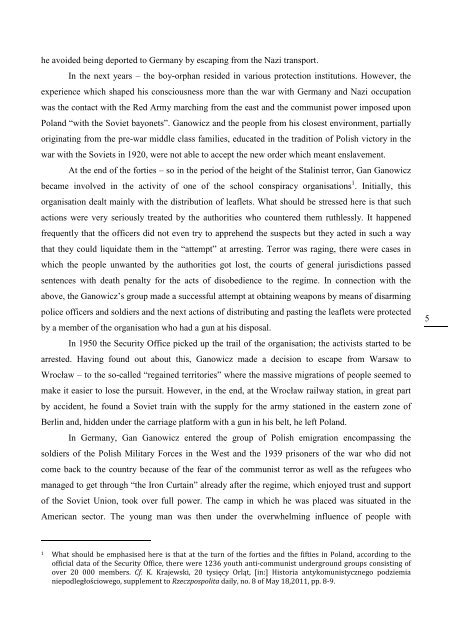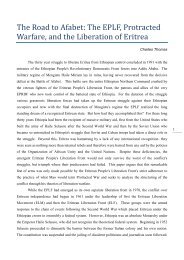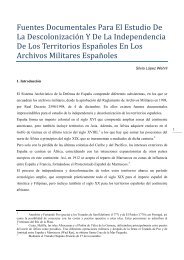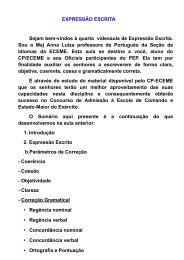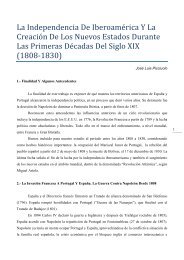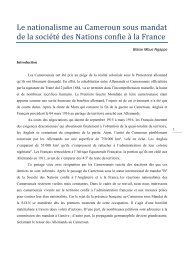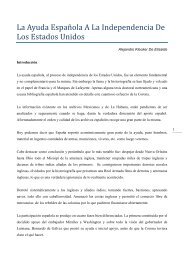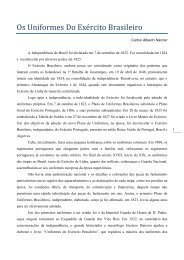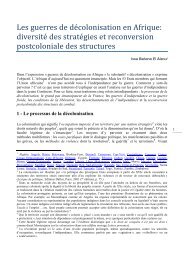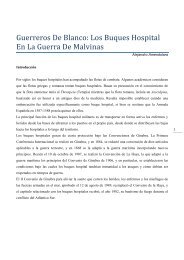96- Rafal Gan-Ganowicz. Polish Hero Of Yemen
96- Rafal Gan-Ganowicz. Polish Hero Of Yemen
96- Rafal Gan-Ganowicz. Polish Hero Of Yemen
You also want an ePaper? Increase the reach of your titles
YUMPU automatically turns print PDFs into web optimized ePapers that Google loves.
he avoided being deported to Germany by escaping from the Nazi transport.In the next years – the boy-orphan resided in various protection institutions. However, theexperience which shaped his consciousness more than the war with Germany and Nazi occupationwas the contact with the Red Army marching from the east and the communist power imposed uponPoland “with the Soviet bayonets”. <strong>Gan</strong>owicz and the people from his closest environment, partiallyoriginating from the pre-war middle class families, educated in the tradition of <strong>Polish</strong> victory in thewar with the Soviets in 1920, were not able to accept the new order which meant enslavement.At the end of the forties – so in the period of the height of the Stalinist terror, <strong>Gan</strong> <strong>Gan</strong>owiczbecame involved in the activity of one of the school conspiracy organisations 1 . Initially, thisorganisation dealt mainly with the distribution of leaflets. What should be stressed here is that suchactions were very seriously treated by the authorities who countered them ruthlessly. It happenedfrequently that the officers did not even try to apprehend the suspects but they acted in such a waythat they could liquidate them in the “attempt” at arresting. Terror was raging, there were cases inwhich the people unwanted by the authorities got lost, the courts of general jurisdictions passedsentences with death penalty for the acts of disobedience to the regime. In connection with theabove, the <strong>Gan</strong>owicz’s group made a successful attempt at obtaining weapons by means of disarmingpolice officers and soldiers and the next actions of distributing and pasting the leaflets were protectedby a member of the organisation who had a gun at his disposal.In 1950 the Security <strong>Of</strong>fice picked up the trail of the organisation; the activists started to bearrested. Having found out about this, <strong>Gan</strong>owicz made a decision to escape from Warsaw toWrocław – to the so-called “regained territories” where the massive migrations of people seemed tomake it easier to lose the pursuit. However, in the end, at the Wrocław railway station, in great partby accident, he found a Soviet train with the supply for the army stationed in the eastern zone ofBerlin and, hidden under the carriage platform with a gun in his belt, he left Poland.In Germany, <strong>Gan</strong> <strong>Gan</strong>owicz entered the group of <strong>Polish</strong> emigration encompassing thesoldiers of the <strong>Polish</strong> Military Forces in the West and the 1939 prisoners of the war who did notcome back to the country because of the fear of the communist terror as well as the refugees whomanaged to get through “the Iron Curtain” already after the regime, which enjoyed trust and supportof the Soviet Union, took over full power. The camp in which he was placed was situated in theAmerican sector. The young man was then under the overwhelming influence of people with51 What should be emphasised here is that at the turn of the forties and the fifties in Poland, according to theofficial data of the Security <strong>Of</strong>fice, there were 1236 youth anti-communist underground groups consisting ofover 20 000 members. Cf. K. Krajewski, 20 tysięcy Orląt, [in:] Historia antykomunistycznego podziemianiepodległościowego, supplement to Rzeczpospolita daily, no. 8 of May 18,2011, pp. 8-9.


